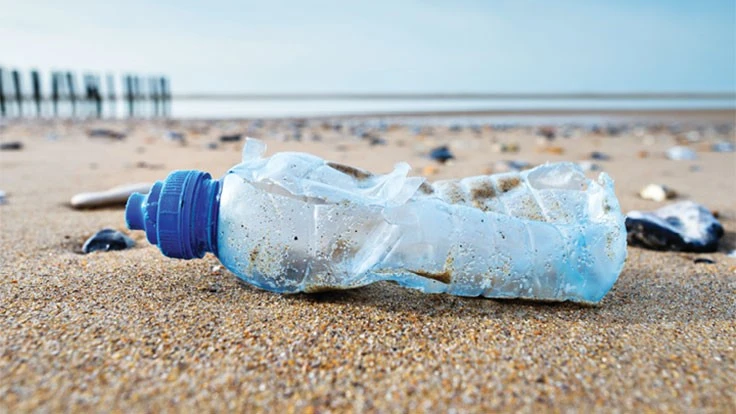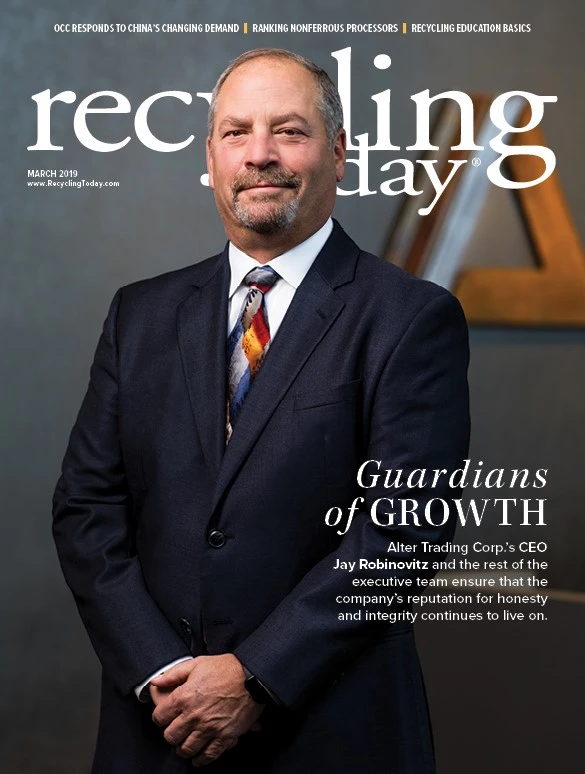
Image’in / stock.adobe.com

Midland, Michigan-based Dow Chemical Co. is best known for its diversified portfolio of specialty chemicals, advanced materials,
End-of-life innovations
In 2014, Dow partnered with Reynolds Consumer Products to introduce the Hefty EnergyBag program, which is designed to divert difficult-to-recycle plastics, such as candy wrappers and juice pouches, for energy recovery. The company says that as of July 2018, the Hefty EnergyBag program has collected more than 176,500 bags and diverted more than 115 tons of plastics from landfills. Dow recently announced that it would make an additional $100,000 in grant funding available for organizations to establish Hefty EnergyBag programs in their communities.
The company also has sought to improve the recyclability of plastic packaging, having introduced its RecycleReady Technology. Dow says RecycleReady Technology offers packaging manufacturers a sustainable, more recyclable packaging system by giving them a way to create flexible packaging that can be easily recycled through existing polyethylene (PE) film recycle streams, such as grocery store drop-off programs in the United States and Canada.
In addition to innovations such as these, the company is looking to address the issue of plastic waste in the environment.
Plastics in the environment
Dow says it has played a leading role in forming the Alliance to End Plastic Waste (AEPW), a coalition of 30 companies throughout the plastics and consumer goods supply chain. The organization has committed more than $1 billion with the goal of raising $1.5 billion over the next five years to develop and scale solutions that manage plastic waste and promote
“Keeping our environment free of waste is important to the future of Dow and our industry, but more importantly, it’s important to the future of our planet,” says Dow CEO Jim Fitterling in a news release announcing the company’s involvement in AEPW.
The AEPW has partnered with the World Business Council for Sustainable Development, Geneva, and will prioritize investments in infrastructure development to collect and manage waste and increase recycling; innovation to advance and scale new technologies that make recycling and recovering plastics easier; educating and engaging governments, businesses and communities; and cleaning concentrated areas of plastic already in the environment.
Global Sustainability Director Haley Lowry says the issue of ocean plastics resonates with Dow because “it is one of the biggest challenges and opportunities we’re seeing at this point and time in history.”
Dow’s involvement in AEPW is the most recent of its actions to address plastic waste in the environment. The company also is a founding investor in Circulate Capital’s $100 million effort to incubate and finance companies and infrastructure that prevent waste in oceans.
Additionally, Dow has joined the World Economic Forum’s Global Plastic Action Partnership, designed to bring businesses, society, national and local governments, community groups and experts together to collaborate on the issue of plastic pollution. This partnership plans to invest in localized solutions by 2020 that can be adapted and implemented in other countries. The first project is a collaboration with the government of Indonesia.
Dow also announced in October 2018 that it is donating an additional $1 million to The Ocean Conservancy over next two years to support waste collection and recycling in Southeast Asia.
Getting their hands dirty
Dow employees have taken an active role to clean up plastics in the environment, literally getting their hands dirty through the company’s #PullingOurWeight campaign in partnership with The Ocean Conservancy and local organizations. Through this effort, which began in the fall of 2018, more than 5,600 Dow employees, families
_fmt.png)
The company’s goal was to engage its employees, who Lowry describes as “passionate” about making a difference. Dow challenged them to collect 4 pounds of trash per person, but they achieved double that goal.
She says that while Dow has participated in these types of cleanup efforts in the past on a smaller scale, Fitterling has “put out bold initiatives on the sustainability side and wants to make an impact on solving some of these issues.” Lowry adds, “It started at the top down, and our employees were really mobilized.”
While much of the plastics collected during these efforts was recycled, she says, some
Partnering for change
Dow says it continues to collaborate across the value chain on plastics recycling. “This is a big thing for us,” Lowry says. “We make
To that end, the company is a founding member of the Sustainable Packaging Coalition (SPC), a project of GreenBlue, Charlottesville, Virginia. The SPC collaborates with packaging converters and brand owners to increase production of stand-up pouches that can be recycled through existing PE film recycling streams.
Dow says it also is working to complement its circular economy activities by driving

Explore the March 2019 Issue
Check out more from this issue and find your next story to read.
Latest from Recycling Today
- Lautenbach Recycling names business development manager
- Sebright Products partners with German waste management equipment company
- WasteExpo transitions to biennial format for enhanced experiences
- Study highlights progress, challenges in meeting PCR goals for packaging
- Washington legislature passes EPR bill
- PureCycle makes progress on use of PureFive resin in film trials
- New copper alloy achieves unprecedented high-temperature performance
- Gränges boosts profits and sales volume in Q1 2025





